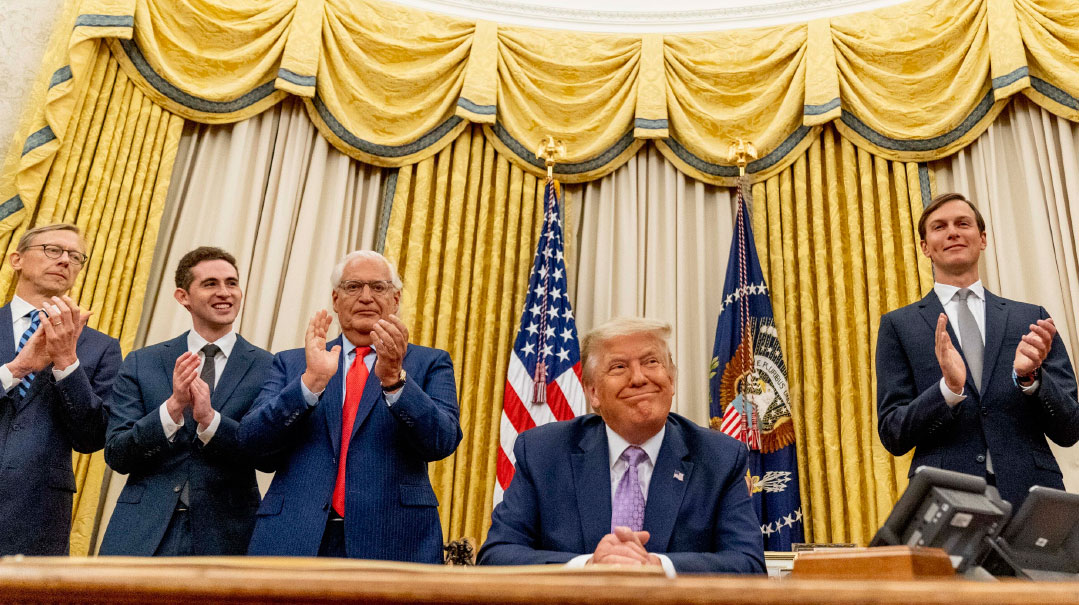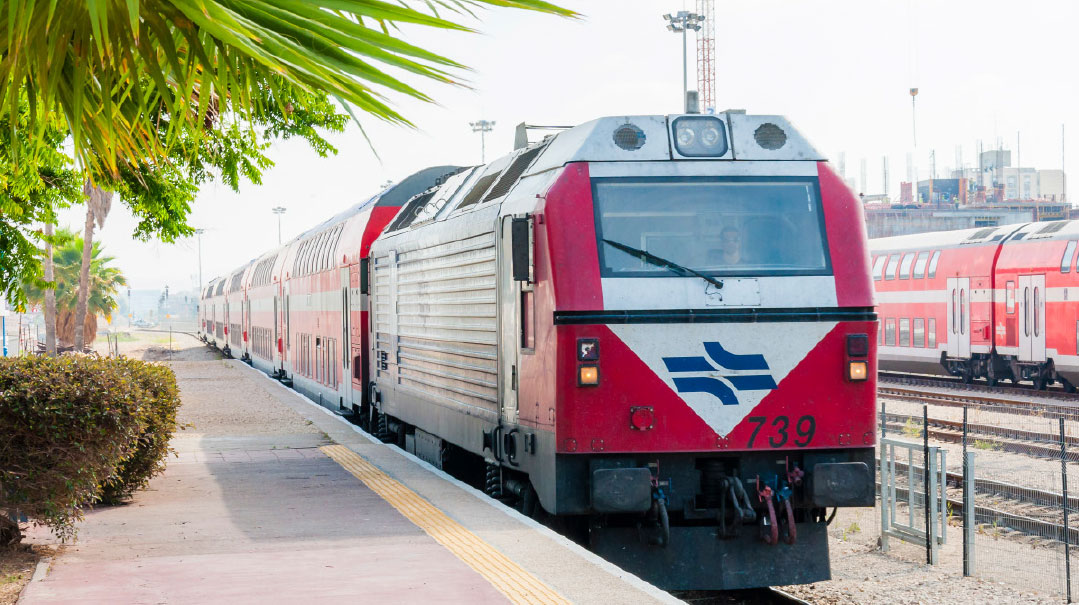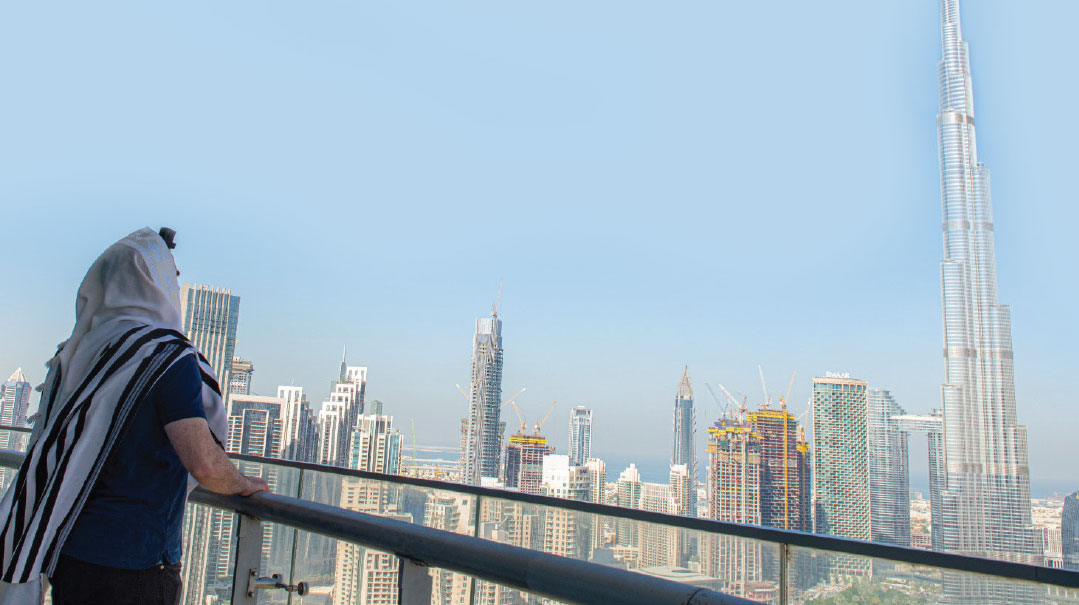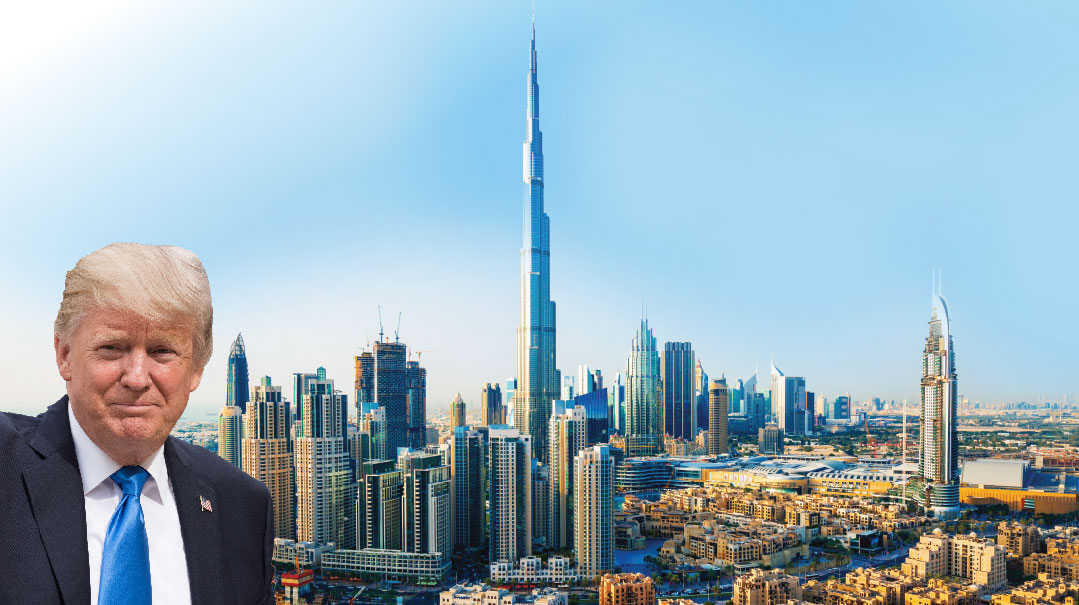The Story Behind the Israel-UAE Deal

White House envoy Avi Berkowitz traces the story behind the historic Israel-UAE deal
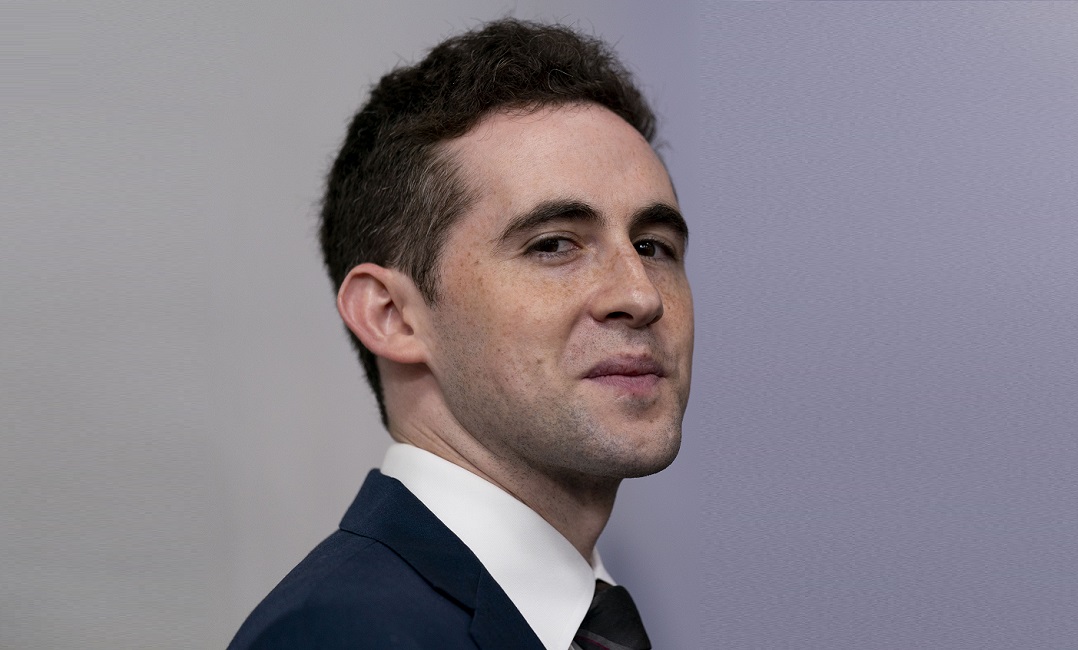
Avi Berkowitz — a 31-year-old product of Yeshiva of Far Rockaway and Jerusalem’s Kol Torah — is President Trump’s special representative for international negotiations, having replaced Jason Greenblatt in that role last year. Since then, Berkowitz has been instrumental in behind-the-scenes diplomatic negotiations between Israel and the United Arab Emirates (UAE). After last Friday’s announcement of normalization, he took the time to answer some questions from Mishpacha.
Tell us how this all started.
A little bit over a year ago, at the president’s direction, Jared Kushner started working on this. And we saw an opening [for normalization.] Jared had a very productive conversation with [UAE] Ambassador Yousef Al Otaiba in Washington.
And despite the best of intentions of everyone, some complications arose with the Israeli elections, and then came the coronavirus, and numerous other things came up that were nobody’s fault — it ultimately ended up slowing things down a bit. And about six weeks ago and a half weeks ago, the conversations began to materialize again in an extremely substantive way.
Obviously, the application of Israeli sovereignty to areas of the West Bank was something that was covered widely throughout the region.
And it created an effect in numerous Arab countries, many of whom reached out to me, some with thoughts, some with suggestions. And the Emirates reached out to Jared with the suggestion that perhaps now would be a time to go forward with normalization, so long as the application of Israeli sovereignty was suspended to focus on this historic opportunity.
And so what began over a year ago was reignited over the last few weeks, ultimately coming to fruition on Wednesday, and then we had a historic phone call between the two leaders with the president last Thursday.
Maybe you could explain to our readers, those who don’t know you personally, what was your role behind the scenes?
In November of last year, I replaced Jason Greenblatt as the special representative, and I’d also like to thank Jason for his efforts. In November, when I took over the role, I began with finishing the Vision for Peace, to make sure that everything was in the proper place for the rollout. Jason had done a tremendous amount of work on that. And obviously, Jared and [US ambassador to Israel] David Friedman as well. But even before that, we had been spending a lot of our time and effort on the potential for normalization. It was covered in the media somewhat. But ultimately a lot of work was going on behind the scenes, even as we were working on the Vision for Peace that we rolled out on January 28.
My role was to help Jared in any way I could to bring the negotiations to fruition. We have more negotiations that are currently ongoing, and hopefully we will see success in the coming weeks and months ahead.
Joe Biden said the breakthrough was built on the work of many previous administrations, including the Obama-Biden administration. Do you agree that this was something cumulative that would have happened anyway had American policy continued on the same trajectory, or was it the result of President Trump’s paradigm shift in Middle East policy?
I don’t like to talk about other administrations, but in this case I find it a little absurd for others to take the credit, especially considering the distrust among our allies that we inherited from the previous administration. I firmly believe that this deal is not only the direct result of President Trump’s policies, but entirely so. I know the details of this deal — it is the result of his relationship-building across the Middle East, his commitment to Israel and to stopping Iran, and credit to the work of our team. But I suppose in this case the attempt to share the credit is a form of flattery.
“Normalization” between Israel and the UAE could mean many things. In Israel it’s being taken to mean full-blown peace, but in the Emirates they’re referring to relations. Do they mean a full-blown peace treaty with Israel?
I think the best answer is to look at the joint statement approved by the three countries. It lists in fine detail what we mean by full normalization: diplomatic relations, embassies, tourism, flights.
Ever since the announcement, we keep hearing different initial stages in this opening: phone connection between the two countries that didn’t exist before, Israeli websites unblocked in the UAE. Each time I hear these things, I get a feeling of excitement, and I know that as this thing progresses, we can achieve more.
Both Israelis and Emiratis are smart people, and they’re going to think of their own ways to connect the two countries.
Do you do see this peace between UAE and Israel as “cold peace” or “warm peace”? How is it going to look?
It’s my sincere hope that we’ll all see quickly that this is peace of substance, of peaceful interactions between people, not just between diplomats. Interactions with Israelis heading to Dubai, and Emiratis praying at the Al-Aqsa Mosque and vacationing in Tel Aviv. It’s a peace that will lead to tourism and technology transfer and information transfer and people learning about each other and their cultures, and I’m very hopeful. And I think already we’ve seen with senior Emirati officials already giving interviews with the Israeli media that the Emirati people and the leadership see this as a peace of warmth, one that will lead to historic opportunities for both peoples.
Did you expect this to happen six months ago?
If you had asked me three weeks ago, I would have said, I hope so, but I can’t say for certain. Peace deals are very complex, complicated negotiations. And ultimately, Jared Kushner led this team brilliantly at the president’s direction and instruction. And under their leadership, of, both of them, we were able to accomplish this.
But of course, there were moments where I couldn’t know for certain if things were progressing or stalling. And ultimately, until the president had the final call with the two leaders. And I heard it with my own ears, all three leaders being excited and happy and looking forward to the future of peace and commenting on what a historic opportunity this was. Only then did I know for 100 percent certainty that we had accomplished something unique and special.
Do you believe that normalization with Saudi Arabia is possible as well?
I prefer not to get into the negotiations, but what I will say is that Saudi Arabia has made significant progress in their treatment toward women, and made numerous other steps to moderate, and we’re hopeful that additional diplomatic breakthroughs are possible. But again, I prefer not to get into specifics on countries at this time.
How significant is Iran in bringing Israel and the UAE together?
Certainly, Iran has played an important role in everything that you’re seeing. It’s no accident that Brian Hook [the former US Special Representative for Iran, who just resigned that role in the State Department on August 6] and I both came into this role at the same time to work together on this file. Anytime I traveled with Jared to the region, one of the main topics of conversation that came up throughout the entire region was Iran’s aggression.
It actually was extraordinarily helpful to add Brian to our team, because he was able to fill in leadership in the region as to what exactly the US was proposing. And ultimately, having him on the team was a tremendous value add and a significant component of how we were able to accomplish this deal.
In the 1970s, Henry Kissinger engaged in so-called “shuttle diplomacy” between Israel and Egypt, jetting between capitals to bring the sides together. But because of coronavirus, you’ve had to engage in “Zoom diplomacy.” How does that work?
The fact that coronavirus happened in 2020 and not 2017 meant that Jared Kushner had spent three years building trust with the players on the ground, which was instrumental to the breakthrough happening. Because of the limitations on traveling, we worked extremely closely over the last few weeks with ambassadors Al Otaiba and Dermer in Washington. But without those face-to-face interactions, some of which I joined him on — which were an opportunity to show people we were serious — it’s possible this wouldn’t have happened.
Months out from an election and in the middle of a pandemic, President Trump is busy with many political and policy issues now, but how important is this Middle East agreement to the president, and how did he show it?
Great question. There were a couple of moments when I realized how important this was to him and the senior administration officials. First was that there were no leaks. The only way I have to explain that is that everyone working on this file felt privileged to be doing so, and took it seriously. That meant they were very careful about who they talked to.
The second moment was in that room on Thursday after the president had finished his phone call. I’m sad that the rest of the world didn’t hear the call between the three leaders, which was truly historic, and left all who heard it emotional. When President Trump had finished, there was a pause and then Secretary Mnuchin stood up and started clapping spontaneously, and then he was joined by the other 20 people in the room, and then the president joined as well. He’s a tremendous dealmaker, but the look on his face showed how excited he was personally by this historic deal.
(Originally featured in Mishpacha, Issue 824)
Oops! We could not locate your form.






